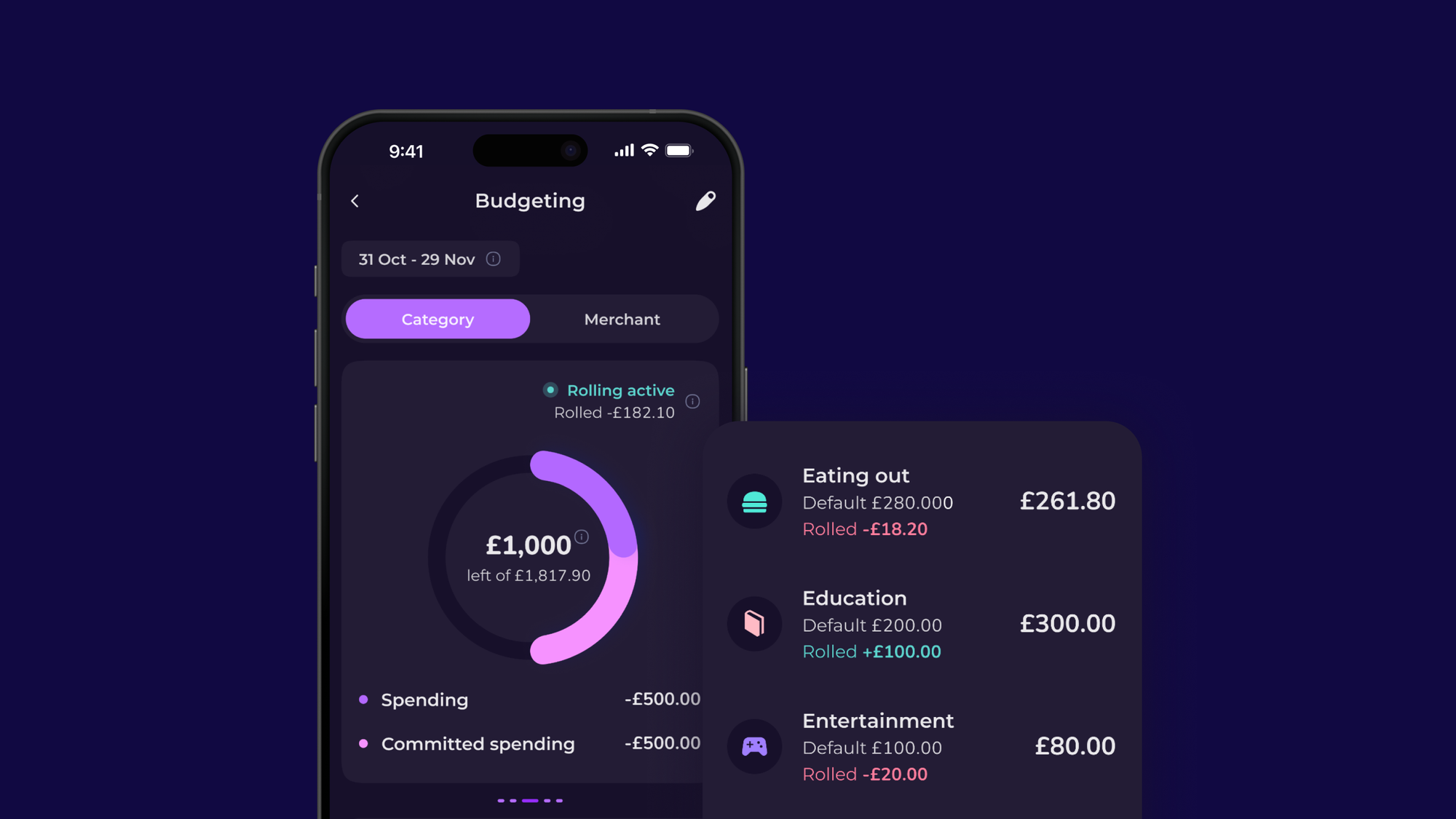FEATURED ARTICLE
What are the top 4 credit agencies in the UK?

Ainsley Bilton
June 22, 2023 •4 min read
We often hear about the importance of having a good credit score and the ways to achieve this, but it is not as popular to discuss where this score is coming from and who are the organizations behind creating and monitoring our credit scores. In the UK there are 4 main credit agencies responsible for compiling this information and they are Experian, Equifax, Transunion, and Crediva.
What do credit agencies do?
Credit agencies compile data for both individuals and businesses to then use this information to create a numerical credit score. This score is used to determine a person's creditworthiness when it comes to getting a mortgage, signing a lease, getting approved for a loan, etc. These agencies create this score based on one's credit and debt history and so it is important to take the necessary steps to maintain a good credit score.
Credit agencies work by aggregating credit and debt history from banks, credit card companies, and loan providers mainly and report this data to be compiled over time and adjusted accordingly with the person or business's habits. In essence, they look at how you have handled debt in the past to determine how trustworthy you are
What are the top 4 in the Uk?
There are four main credit agencies in the UK and those are Experian, Equifax, Transunion, and Crediva. These four companies each acquire financial records from different institutions and compile a person's credit score accordingly. For the most part, they each do the same thing but there can be differences in the institutions that report to each which can result in a different score from each. Let's break down a little more about each of the agencies.
Experian
Experian is the most popularly used credit agency and as a result, is often seen as the most trusted credit rating in the UK. They break down their credit reports based on personal information, employment, accounts (including credit cards, loans & mortgages), and inquiries. Experian provides this data monthly for each account as well as how long each account will stay on the report. Typically any transgressions such as a missed payment will stay on someone's credit report for at least 6 years. Consumers can add personal notes to their accounts to explain any potentially damaging entries like a missed payment.
Equifax
Equifax sets up its credit reports a little differently. They first group accounts into an open or closed list which makes it easy to see current vs old credit. Equifax operates on an 81-month credit history system meaning they look at 7 years worth of transactions. Equifax breaks down its report between revolving accounts (i.e. credit cards & charge cards), mortgages, installment loans, & other accounts like those from a debt collection agency. Like Experian, you can add a consumer statement to your credit report. Experian also includes additional personal history, inquiries from potential creditors, public records, and collections agencies.
Transunion
Transunion creates its score based on the VantageScore 3.0 score system which takes into account your payment history for 40% of your score, and credit utilization for 20%. The length of your credit history contributes to 21%, and the total amount of recently reported balances make up 11%. The remainder comes from new credit accounts which are responsible for 5% and your available credit makes up 3%.
Crediva
Crediva works a little bit differently from the other three as they place less of an emphasis on your past payment history. For people who may have a limited credit history or a few negative points on their report, Crediva may produce a higher score than the other agencies as they weigh their reports differently. By not relying as much on credit history and utilizing alternative data and advanced scoring analytics, Crediva can help more people in the UK to receive credit.
What are the differences between them?
Each of these agencies are individual companies and so they update and record their information independently from one another. This often results in differing credit scores from each credit bureau. For example, if a person has a credit card that reports to all 4 agencies and a cell phone provider that reports to just two that person will likely have a slightly higher score at those agencies which have more data to go off of.
Why is it important to report to multiple agencies?
It is important to have your creditworthiness reported to each of the major institutions as we discussed previously the stronger your credit score the more you can benefit from that. Whether that be getting a lower rate on a personal loan or being eligible for more money when applying for a mortgage or beating out competitors when applying for a flat rental it is important to have a good credit score available to institutions that will check across different credit bureaus.
What are other ways I can improve my credit position?
Typically how you can build credit involves taking on debt whether that be from a credit card, student loan, or personal loan. For many people that can be a daunting task so luckily there are a few other ways to build credit without taking on debt.
One way is by paying for your mobile phone plan each month and another way is reporting your rent payments to a credit bureau. Rent reporting allows you to improve your credit position by simply reporting your rent payments. For many people their rent is their largest expense and rent reporting allows you to make the most of this payment to count towards your credit score!
How do I get started Rent Reporting?
You can easily get started with rent reporting in Emma by simply turning on rent reporting in the app directly from your feed. From here you select your rent payment from your transactions and Emma will start reporting your rent payment to major credit bureaus Equifax, Experian and TransUnion! It is that simple!
To be eligible for rent reporting you must have lived and paid rent at your current address for at least 6 months and your payments must be made either to a landlord or rental agency directly.
For those who live in a houseshare and pay another roommate, this feature will not be eligible. Rent reporting has no negative impact on your credit score even if you miss or are late on a payment!
Understanding how your credit score is calculated and the agencies that are responsible for doing so is essential to building strong credit. Your credit report is a powerful tool and the agencies that monitor it are able to have a great deal of impact on your life. By learning more about how each bureau operates you are able to adjust your behaviors to maximise your credit.
You may also like
Check out these related blog posts for more tips
© 2025 Emma Technologies Ltd. All Rights Reserved.
Emma is registered and incorporated in England and Wales.
Emma Technologies Ltd is an appointed representative of RiskSave Technologies Ltd, which is authorised and regulated by the Financial Conduct Authority (FRN 775330).
Payment services (Non MIFID or Deposit related products) for Emma Technologies Ltd are provided by The Currency Cloud Limited. Registered in England No. 06323311. Registered Office: Stewardship Building 1st Floor, 12 Steward Street London E1 6FQ. The Currency Cloud Limited is authorised by the Financial Conduct Authority under the Electronic Money Regulations 2011 for the issuing of electronic money (FRN: 900199). For more detail on how your money is protected please see here. You can also find Currency Cloud's Terms of Use here.
Emma Technologies is an Introducer Appointed Representative of Quint Group Limited and not a lender. Quint Group Limited is authorised and regulated by the Financial Conduct Authority (Firm Reference Number 669450). Monevo Limited is an Appointed Representative of TransUnion International UK Limited. TransUnion is authorised and regulated by the Financial Conduct Authority (Firm Reference Number 737740). Emma Technologies introduces customers first to Quint Group Limited, as a licensed credit broker, who then refers on to Monevo Limited.
Emma is registered with the Financial Conduct Authority under the Payment Services Regulations 2017 for the provision of payment services.
Financial Conduct Authority Reg Nr: 794952.
Company Registration Number: 10578464.
Data Protection Registration Number: ZA241546.
All testimonials, reviews, opinions or case studies presented on our website may not be indicative of all customers. Results may vary and customers agree to proceed at their own risk.
Resources: Cancel subscriptions, Cashback offers, Who charged me, Rent Reporting, Budgeting, Investment universe, Emma vs Moneyhub.
Featured cashback offers: Samsung, SimplyCook, NordVPN, Audible, M&S Homeware.









